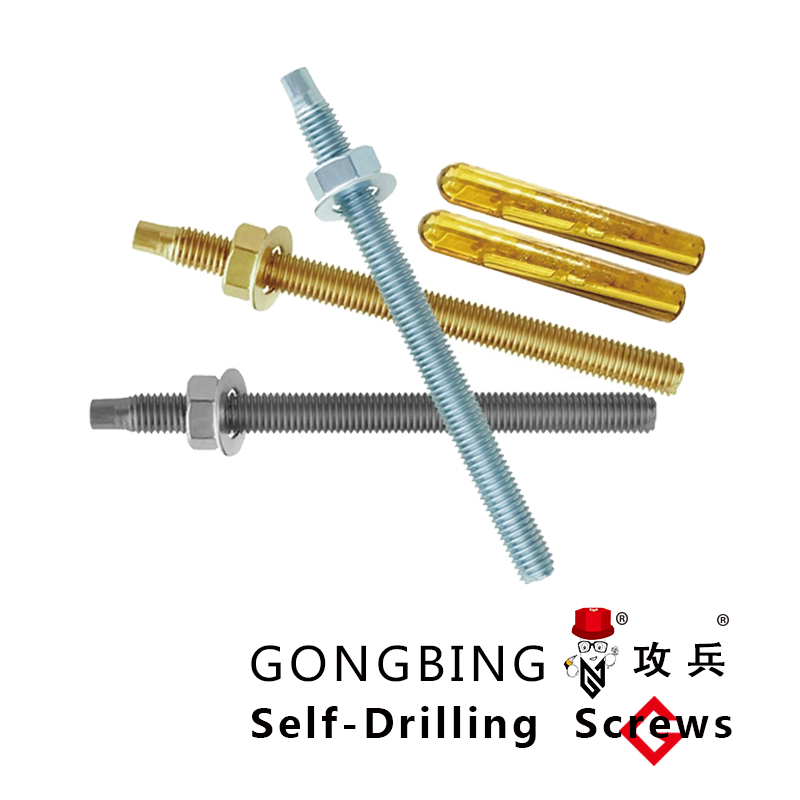expandable bolts concrete
Understanding Expandable Bolts for Concrete Applications
Expandable bolts, often referred to as expansion anchors, are essential hardware components widely utilized in the construction and engineering sectors. These fasteners provide a secure means of attaching objects to concrete surfaces, making them invaluable in both commercial and residential projects. This article explores the functionality, types, and applications of expandable bolts for concrete, highlighting their significance in modern construction practices.
What Are Expandable Bolts?
Expandable bolts are designed to create a tight grip within the material they are anchored into. Composed of a bolt, a sleeve, and often a cone or wedge mechanism, these anchors work by expanding against the concrete when the bolt is tightened. This expansion mechanism is what differentiates them from regular bolts, allowing them to bear significant loads and resist pull-out forces. They are particularly beneficial in environments where vibration or dynamic loads may be present, as their grip increases under stress.
Types of Expandable Bolts
Several types of expandable bolts are available, each designed to cater to specific applications and performance requirements. Here are the most common types
1. Wedge Anchors These anchors feature a wedge-shaped end that expands as the bolt is tightened. Wedge anchors are particularly robust and are often used in heavy-duty applications, such as securing structural elements or heavy machinery.
2. Sleeve Anchors Similar to wedge anchors, sleeve anchors expand by the movement of an outer sleeve. They are versatile and can be used in both solid concrete and masonry applications. Sleeve anchors are popular for moderate to heavy loads.
3. Drop-In Anchors These are used for flush mounting applications, such as when a clean finish is required. Drop-in anchors are inserted into a pre-drilled hole and expand when a setting tool is used, making them an excellent choice for seismic applications.
expandable bolts concrete

4. Hammer-Set Anchors This type utilizes a steel sleeve that expands when a cap is struck with a hammer, providing a quick installation method. Hammer-set anchors are lightweight and suitable for light to medium loads.
Applications of Expandable Bolts in Concrete
The usage of expandable bolts is vast and varied. They play a crucial role in the following applications
- Structural Support In commercial buildings, expandable bolts are often used to fix beams, columns, or frames to the concrete foundation, ensuring structural integrity. - Equipment Installation Manufacturing plants frequently utilize expansion anchors to secure machinery and equipment to floors, facilitating safe operation and minimizing vibration effects.
- Hanging Fixtures In both residential and industrial settings, these bolts are employed to hang items like shelving units, overhead lighting, or storage racks. Their reliability helps maintain the safety and longevity of these installations.
- Outdoor Applications Expandable bolts are resistant to environmental factors, making them ideal for outdoor installations such as securing fences, signs, or playground equipment.
Conclusion
Expandable bolts for concrete are vital for any construction project requiring secure and durable fastening solutions. Their ability to provide strong anchorage in concrete ensures safety and reliability across various applications. Understanding the different types of expandable bolts and their specific uses helps professionals make informed choices, ultimately leading to successful project outcomes. When selecting the appropriate anchor, considerations such as load requirements, installation environment, and desired aesthetics play critical roles in achieving optimal performance. With ongoing advancements in materials and design, the future of expandable bolts continues to promise improved efficacy and utility in the ever-evolving landscape of construction.
-
Weatherproof Plastic Expansion Anchors for OutdoorNewsJun.06,2025
-
Sustainability in the Supply Chain: Eco-Friendly TEK Screws ProductionNewsJun.06,2025
-
Load-Bearing Capacity of External Insulation FixingsNewsJun.06,2025
-
Double Head Bolts: Enhancing Efficiency in Industrial MachineryNewsJun.06,2025
-
Corrosion Resistance in Chipboard Screws: Coatings for Wholesale DurabilityNewsJun.06,2025
-
Butterfly Toggle Bolts : Enhancing Structural ResilienceNewsJun.06,2025
